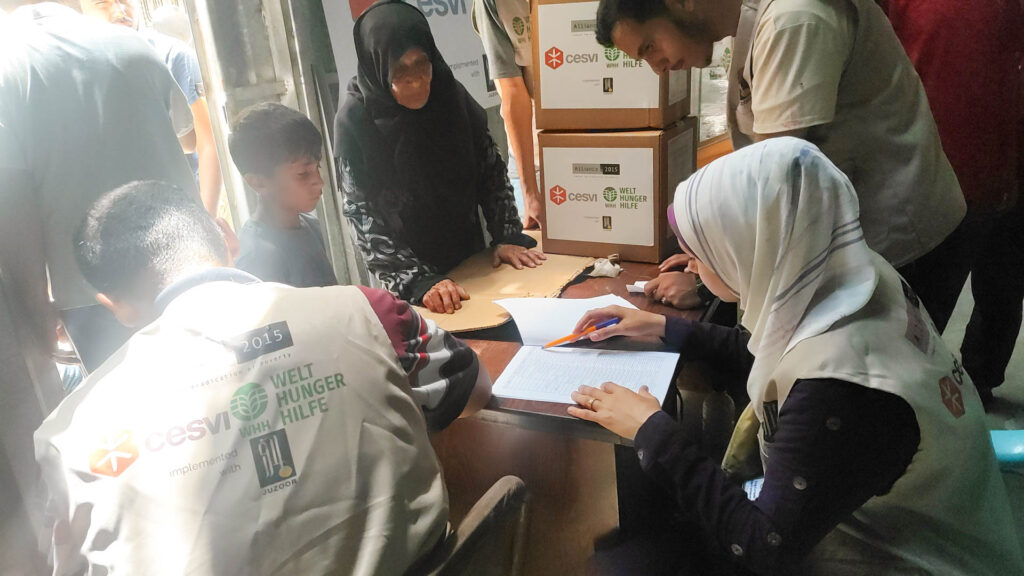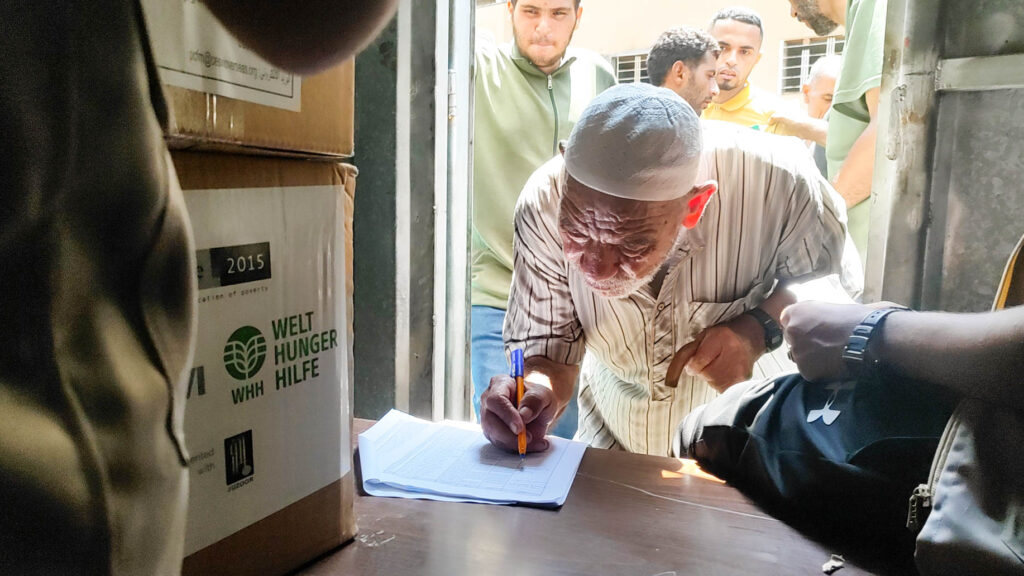As the humanitarian crisis in Gaza rapidly worsens, Welthungerhilfe (WHH), in collaboration with Alliance2015 partner CESVI, and Juzoor, is intensifying efforts to provide life-saving assistance to over 50,000 people in some of the most heavily impacted areas of the Gaza Strip. Despite facing significant challenges, the organizations remain committed to delivering critical aid to those in need.
According to the UN, more than 90 percent of Gaza’s population has been displaced. Many people have fled multiple times in search of protection from ongoing fighting. Designated safe zones within the Gaza Strip change frequently and have become overcrowded, with some areas reaching a density of more than 30,000 people per square kilometer. At the same time, accessing those in need is becoming increasingly difficult due to bureaucratic hurdles and security restrictions.
“There is currently no other region in crisis where it is more difficult to provide humanitarian aid,” said WHH Secretary General, Mathias Mogge, underscoring the severity of the situation. “Trucks face weeks-long delays at the border, aid warehouses and distribution points are frequently evacuated due to changing safety orders, and safe access routes are regularly blocked. Humanitarian workers are constantly under threat. Yet, despite these challenges, we remain determined to continue supporting those in need,” emphasized Mogge.
A Joint Response to Save Lives
To meet the pressing needs of displaced families, WHH’s aid efforts—carried out through the Alliance2015 Joint Intervention and the support of the German Federal Foreign Office, along with CESVI and local partner Juzoor— focus on distributing essential food supplies, dietary supplements for malnourished children, and hygiene kits to displaced families. These efforts are particularly aimed at supporting the most vulnerable populations—children, pregnant and breastfeeding women, and older people—who are at high risk of malnutrition due to poor access to adequate care. The supplies, sourced from Egypt and Jordan, are transported into Gaza via the Rafah and Kerem Shalom border crossings.

In addition to these immediate relief measures, the organizations are implementing a range of critical interventions to further alleviate suffering in the worst-affected areas. These include the support of approximately 9,000 additional households, or at least 45,000 people:
- Equipping and operating nutrition centers, where an estimated 30,000 people receive food supplements and primary health care.
- Ensuring clean water access for camps and collective shelters through regular water transportation.
- Maintaining and improving WASH (Water, Sanitation, and Hygiene) facilities at 23 key locations, benefiting approximately 27,500 people to help prevent disease outbreaks.
WHH and its partners strictly adhere to the humanitarian principles of neutrality, humanity, impartiality, and independence in their work. WHH condemns the brutal attack by Hamas on October 7, 2023, in the strongest terms and calls for the immediate release of all remaining hostages. At the same time, WHH calls for an immediate and sustained ceasefire, for the protection of the civilian population and humanitarian workers, and for safe and unhindered access to be provided for the necessary aid supplies as quickly as possible.



